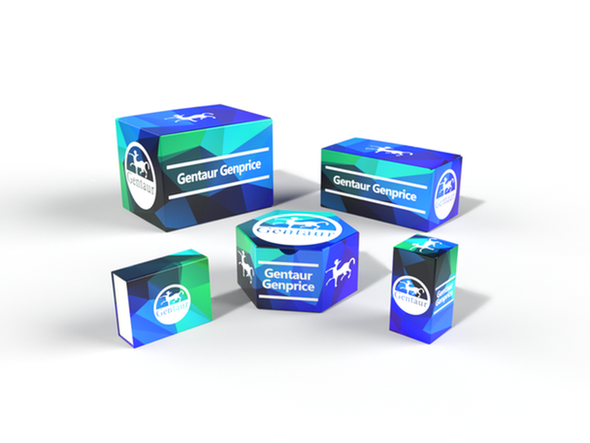Description
Dtnbp1 Antibody | 61-444 | Gentaur UK, US & Europe Distribution
Host: Rabbit
Reactivity: Human, Mouse
Homology: N/A
Immunogen: This Dtnbp1 antibody is generated from rabbits immunized with a KLH conjugated synthetic peptide between 296-325 amino acids from the C-terminal region of human Dtnbp1.
Research Area: Neuroscience
Tested Application: WB, IHC-P
Application: For WB starting dilution is: 1:1000
For IHC-P starting dilution is: 1:10~50
Specificiy: N/A
Positive Control 1: N/A
Positive Control 2: N/A
Positive Control 3: N/A
Positive Control 4: N/A
Positive Control 5: N/A
Positive Control 6: N/A
Molecular Weight: 40 kDa
Validation: N/A
Isoform: N/A
Purification: This antibody is purified through a protein A column, followed by peptide affinity purification.
Clonality: Polyclonal
Clone: N/A
Isotype: Rabbit Ig
Conjugate: Unconjugated
Physical State: Liquid
Buffer: Supplied in PBS with 0.09% (W/V) sodium azide.
Concentration: batch dependent
Storage Condition: Store at 4˚C for three months and -20˚C, stable for up to one year. As with all antibodies care should be taken to avoid repeated freeze thaw cycles. Antibodies should not be exposed to prolonged high temperatures.
Alternate Name: Dysbindin, Biogenesis of lysosome-related organelles complex 1 subunit 8, BLOC-1 subunit 8, Dysbindin-1, Dystrobrevin-binding protein 1, Hermansky-Pudlak syndrome 7 protein homolog, HPS7 protein homolog, Dtnbp1, Bloc1s8, Sdy
User Note: Optimal dilutions for each application to be determined by the researcher.
BACKGROUND: Dtnp1 may play a role in organelle biogenesis associated with melanosomes, platelet dense granules, and lysosomes. A similar protein in mouse is a component of a protein complex termed biogenesis of lysosome-related organelles complex 1 (BLOC-1) , and binds to alpha- and beta-dystrobrevins, which are components of the dystrophin-associated protein complex (DPC) . Mutations in this protein are associated with Hermansky-Pudlak syndrome type 7. This protein may also be associated with schizophrenia.






